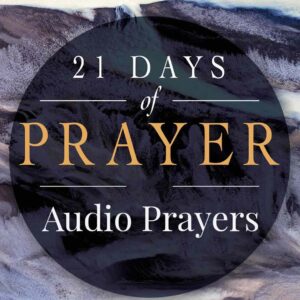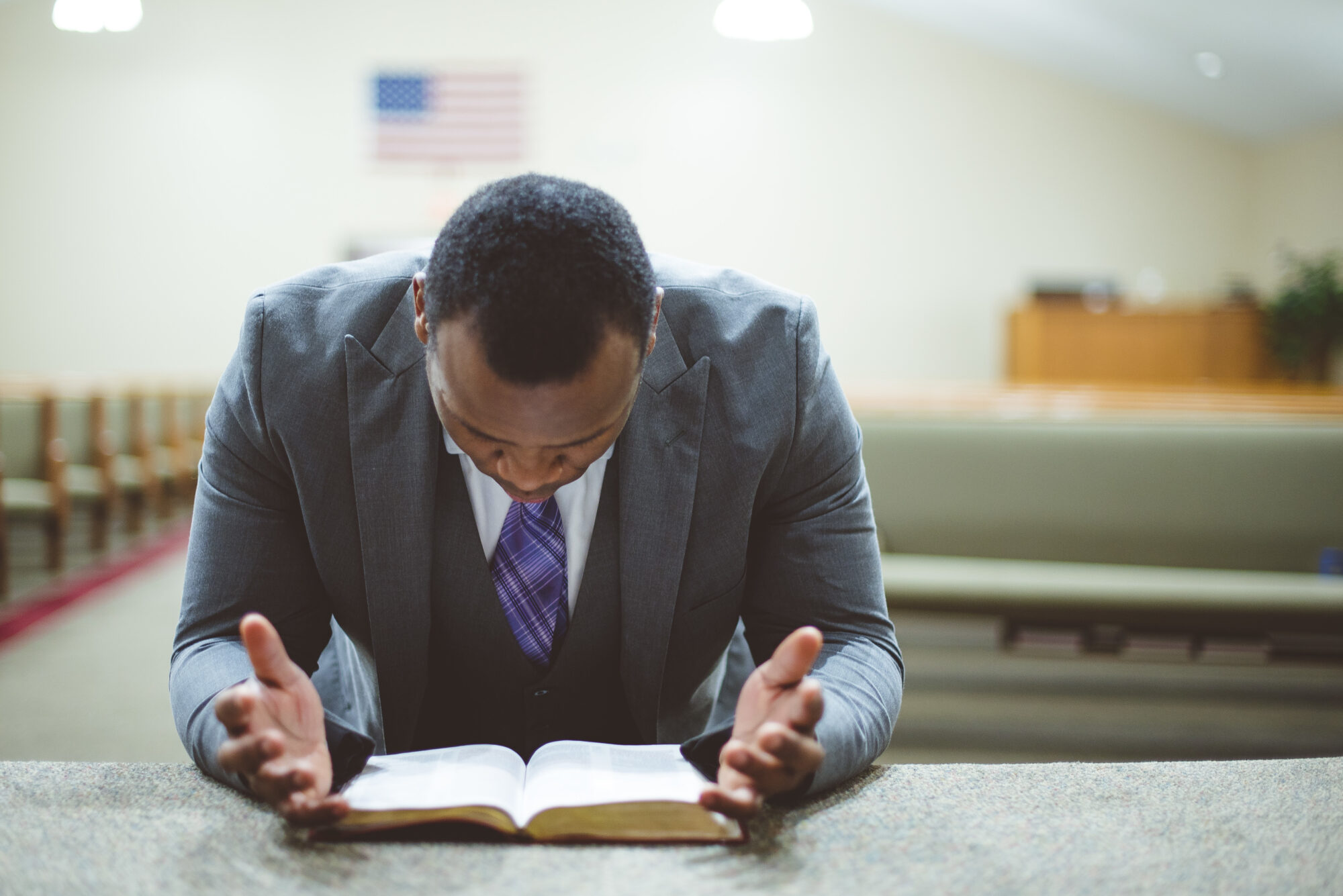A Life Resolved to Prayer
Many know Martin Luther King Jr. as a key leader of the Civil Rights movement of the 1950s and 1960s, and rightly so. However, pressing more deeply into his life and background, you will discover that King’s political activism was motivated and driven from his pastoral heart that was resolved to prayer. As the son of a Baptist minister, he followed in his father’s pastoral footsteps, and at the young age of 25 he was called to pastor Dexter Avenue Baptist Church in Montgomery, Alabama.
The Turning Point
As a young Baptist minister in 1956, King was called on by other older ministers in the Black community to lead the Montgomery Bus Boycott, which at that time was deemed a “suicide mission.” Yet King’s perspective on this initiative was different. In his own words, he exclaimed,
“Often our movement has been referred to as a boycott movement. The word boycott, however, does not adequately describe the true spirit of our movement. The word boycott is suggestive of merely an economic squeeze devoid of any positive value. We have never allowed ourselves to get bogged in the negative; we have always sought to accentuate the positive. Our aim has never been to put the bus company out of business, but rather to put justice in business.”[1]
One night in 1956 King was at his church leading a rally punctuated by prayer for this movement in Montgomery. Suddenly, someone burst through the doors of the church and said that the house where his wife and infant daughter were had been firebombed. Immediately, King and the rest of the congregation rushed down the street to the house, and much to his relief discovered that his wife and daughter had managed to escape. Yet after ensuring they were safe, he realized that another danger was looming. Around his burning house, a group of angry Black citizens had amassed with bats, guns, and other weapons. King knew that if this mob began riding through the streets, many people would lose their lives that night.
It is said that King then did something remarkable. He stepped onto his front porch, which was still in flames, and addressed the enraged crowd with these words: “He who lives by the sword will die by the sword. I want you to love your enemies. Be good to them, love them, and let them know that you love them; we are doing what is right; we are doing what is just. And God is with us.”[2]
“He who lives by the sword will die by the sword. I want you to love your enemies. Be good to them, love them, and let them know that you love them; we are doing what is right; we are doing what is just. And God is with us.” (Martin Luther King Jr.)
Astonishingly, upon hearing these words the crowd dropped their weapons, gathered together, and began to sing the famous hymn “Amazing Grace.” Many historians identify this moment as the turning point of the Civil Rights movement. However, something deeper happened before this incredible moment that served as the root of this turning point.
The Root of Transformation: A Life Resolved to Prayer
I remember once hearing author and pastor Skye Jethani share a version of the story outlined above. While many recognize that night in 1956 as the turning point of the Civil Rights movement, Jethani disagreed and highlighted the aspect of King’s life that often gets overlooked. Because just three nights prior, King had a profound encounter with the presence of God in prayer.
On the night of January 27, 1956, King was woken in the middle of the night by a phone call. An angry voice essentially said to him that if he and his family were not out of town in three days, they were all going to die. Now for a Black minister in Montgomery, Alabama leading a bus boycott in 1956, that was not an idle threat. King hung up the phone, but he couldn’t get back to sleep. He poured himself a cup of coffee in his kitchen, sat down at the table, and buried his face in his hands. In his own words, he said he was paralyzed by fear. All he could think about was how he was going to get himself and his family out of town without losing the respect of the other Black ministers. Yet as he was paralyzed by fear, he began praying over his cup of coffee. Suddenly King heard another voice—not on the telephone, but an inner voice that said to him, “Stand up for righteousness, stand up for justice, stand up for truth, and lo, I will be with you, even until the end of the world.” Later on, King recounted this event in a sermon, and said that “He [God] promised never to leave me, never to leave me alone.”
This indeed was the turning point, when King profoundly encountered Christ in his kitchen, transforming his vision of the world and setting him free from fear. That is when the world changed, and that is what needs to happen in the church again.[3] Historical turning points often result from an inward transformation in someone who intimately encounters Christ.
Historical turning points often result from an inward transformation in someone who intimately encounters Christ.
While the life of prayer that Martin Luther King Jr. modeled doesn’t often get much press, it has been recognized as his most innovative contribution to the spiritual side of the Civil Rights movement. One historian highlights King’s Message from Jail in 1962, a letter that, unlike his Birmingham Letter from Jail, has gone almost unnoticed. King writes of “prayer marches,” “prayer vigils,” “prayer rallies,” and “pilgrimages of prayer,” which reflects his diversified and creative approach to praying and the prayer life.[4] Despite imperfections and flaws, a life resolved to prayer certainly was the inner root that resulted in the fruit and lasting legacy we recognize in Martin Luther King Jr. today—and it can also be true of you!
A life resolved to prayer certainly was the inner root that resulted in the fruit and lasting legacy we recognize in Martin Luther King Jr. today—and it can also be true of you!
In closing, consider these quotes from Martin Luther King Jr. to encourage and inspire you toward a life resolved to prayer which results in living a “God with us” quality of life:
“To be a Christian without prayer is no more possible than to be alive without breathing.”
“To be a Christian without prayer is no more possible than to be alive without breathing.” (Martin Luther King Jr.)
“Pray, and let God worry.”
“I have held many things in my hands, and I have lost them all: but whatever I have placed in God’s hands, that I still possess.”
“Even if I knew that tomorrow the world would go to pieces, I would still plant my apple tree.”
“Faith is a living, daring confidence in God’s grace, so sure and certain that a man could stake his life on it a thousand times.”
“Forgiveness is not an occasional act; it is a permanent attitude.”
“Love is the most durable power in the world. This creative force, so beautifully exemplified in the life of our Christ, is the most potent instrument available in mankind’s quest for peace and security.”
“True peace is not just the absence of tension; it is the presence of justice.”
“Darkness cannot drive out darkness: only light can do that. Hate cannot drive out hate: only love can do that.”
“Use me, God. Show me how to take who I am, who I want to be, and what I can do, and use it for a purpose greater than myself.”
Copyright © 2024 Justin Jeppesen. All rights reserved.
[1] https://kinginstitute.stanford.edu/king-papers/documents/statement-ending-bus-boycott
[2] Transcribed from: https://www.youtube.com/watch?v=yLs8bDnPENk
[3] Adapted from Skye Jehani message cited on: https://www.youtube.com/watch?v=yLs8bDnPENk
[4] Baldwin, V. Lewis. Never to Leave Us Alone: The Prayer Life of Martin Luther King Jr. Fortress Press. Philadelphia, PA. 2010, pp.21-22.



